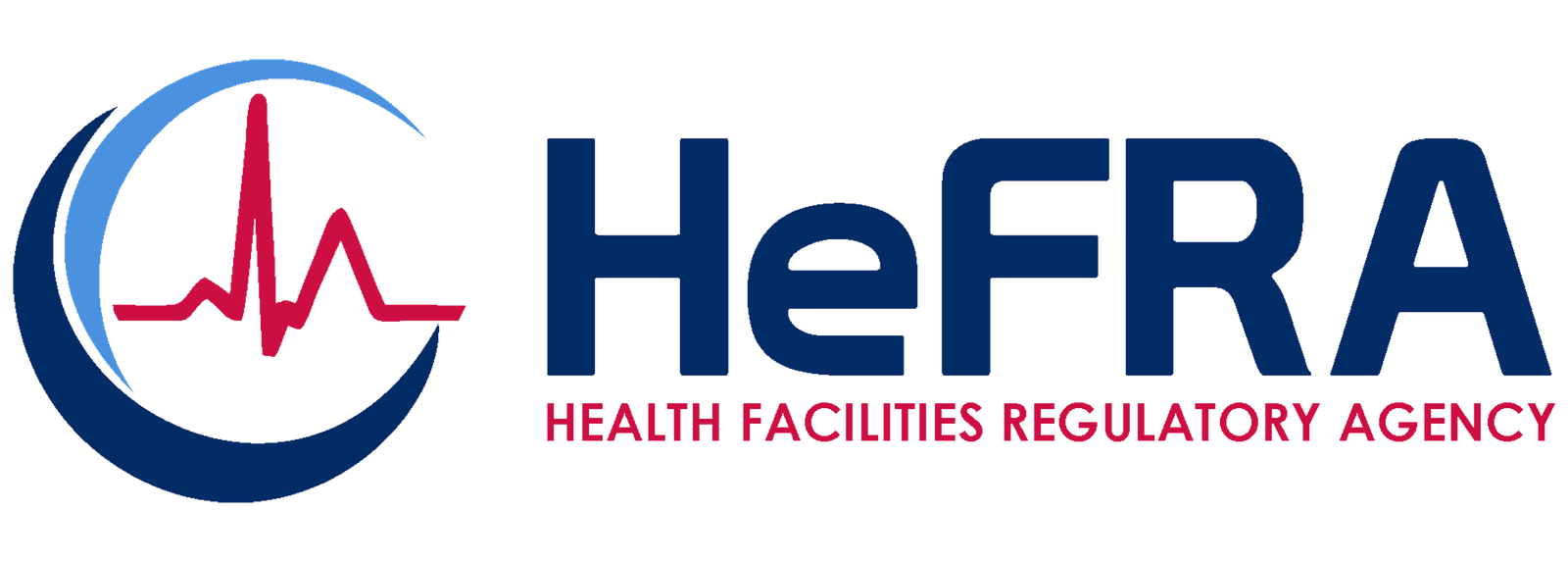
Nourishing Generations: A Ghanaian Mother’s Ultimate Breastfeeding Handbook 🤱🍼
Because every mother, baby, and family situation is unique, please note that the information provided is for general knowledge and does not replace personalized medical advice. Always consult a qualified healthcare professional regarding specific concerns.
Images are only illustrative; may not pass an academic critique
1. Benefits of Breastfeeding in Ghana
Introduction
Breastfeeding is a natural, nutritious, and time-tested way to feed infants. In Ghana—as in many parts of the world—health authorities such as the Ghana Health Service, UNICEF, and the World Health Organization (WHO) strongly promote breastfeeding due to its immense benefits for both mother and baby. Yet despite the public health campaigns, many Ghanaian mothers still face misinformation, socio-cultural barriers, and logistical challenges. Understanding the benefits, addressing myths, and weighing the advantages and disadvantages can empower mothers to make informed decisions.
The Importance of Breastfeeding in Ghana
- Optimal Nutrition for Babies
- Breastmilk is specifically tailored for an infant’s nutritional needs. In the first six months, exclusive breastfeeding (breastmilk only, no additional foods or liquids) provides all the energy, protein, vitamins, and minerals a baby needs to grow optimally.
- Immunity and Disease Prevention
- Breastmilk contains antibodies that help protect babies against common infections such as diarrhea, pneumonia, and ear infections. These antibodies are particularly important in regions with higher incidences of infectious diseases. Exclusive breastfeeding has been shown to reduce infant morbidity and mortality, especially in the first year of life.
- Bonding and Emotional Well-Being
- Breastfeeding fosters skin-to-skin contact, increasing the emotional bond between mother and baby. This closeness can have long-lasting benefits for the child’s emotional and psychological development.
- Cost-Effectiveness
- In Ghana, where many families face economic constraints, breastmilk is an economical and readily available food source for infants. It requires no preparation costs, reducing the financial burden on households.
- Support for the Mother’s Health
- Breastfeeding helps the mother’s uterus contract after delivery, reducing post-partum bleeding and aiding in a quicker physical recovery. Long-term, breastfeeding has been linked to lower risks of breast and ovarian cancers, and it can sometimes help with postpartum weight management.
Images are only illustrative; may not pass an academic critique
Common Myths and Concerns in Ghana
- Myth 1: Breastmilk Alone is Not Sufficient
- Some believe that babies need water, herbal teas, or other foods in the first few months to thrive. In reality, breastmilk alone can meet all of a baby’s hydration and nutritional requirements for the first six months.
- Myth 2: Colostrum (the first thick milk) is Harmful
- In certain communities, colostrum may be discarded because it looks different from “normal” breastmilk. However, colostrum is extremely rich in nutrients and immune factors. It is a baby’s first line of defense and is very beneficial.
- Myth 3: Breastfeeding Mothers Must Not Eat Certain Foods
- While some mothers worry about spicy foods or particular local staples affecting breastmilk, most nutritious and balanced Ghanaian meals are perfectly fine. In general, there is no extensive list of “forbidden” foods—though moderation and variety are key.
- Concern: Breastfeeding in Public
- Cultural attitudes can make mothers uncomfortable with breastfeeding in public spaces. Awareness campaigns and community support can help normalize public breastfeeding and ensure mothers feel supported wherever they are.
Advantages of Breastfeeding
- Nutritional Superiority: Tailored nutrients, plus immunity-boosting factors.
- Health Protection: Reduced risk of infections in the baby, lower risk of certain cancers in the mother.
- Economic Benefits: Cost-free source of high-quality nutrition.
- Bonding: Emotional connection and skin-to-skin contact.
- Hormonal Benefits: Releases hormones like oxytocin that can reduce postpartum bleeding and stress.
Disadvantages or Challenges of Breastfeeding
- Physical Discomfort: Mothers can experience sore nipples, engorgement, or mastitis—especially in the early days.
- Time and Scheduling: Exclusive breastfeeding can be demanding. Working mothers in Ghana may struggle if workplace policies do not allow flexible feeding or pumping breaks.
- Societal/Cultural Stigma: Public breastfeeding or extended breastfeeding can sometimes attract negative attention or misconceptions.
- Medical Exceptions: In rare cases (e.g., certain maternal illnesses, or if the mother is on specific medications), breastfeeding might require additional medical guidance or alternative feeding methods.
Images are only illustrative; may not pass an academic critique
Conclusion
Breastfeeding remains one of the most beneficial, cost-effective, and sustainable ways to nourish infants in Ghana. Public health efforts should focus on educating families and communities, providing supportive workplace policies, and dispelling lingering myths that discourage breastfeeding. Ultimately, an informed mother, backed by reliable healthcare guidance and social support, is better equipped to provide her baby with the healthiest start in life.
2. Frequently Asked Questions (FAQ)
Below is a condensed Q&A addressing many of the questions listed. Remember: For personalized medical advice, always consult a qualified healthcare professional.
General Health & Breastfeeding
- Are breastfeeding moms immunocompromised? Generally, breastfeeding mothers are not considered immunocompromised simply because they are breastfeeding. Most healthy breastfeeding women have normal immune function unless they have an underlying medical condition.
- Are breastfeeding mothers allowed to drink alcohol? Small or occasional amounts of alcohol can pass into breastmilk. Current guidelines often suggest waiting about 2 hours after consuming one standard drink before breastfeeding. It’s best to consult a healthcare provider about alcohol intake.
- Can breastfeeding prevent pregnancy? Breastfeeding can temporarily delay fertility through the Lactational Amenorrhea Method (LAM) if the mother is exclusively breastfeeding (no supplemental feeding), has not resumed menses, and is within six months postpartum. However, it’s not 100% reliable. Additional contraceptive methods are often recommended after that period or if any of the conditions change.
- How does breastfeeding prevent breast cancer? Breastfeeding can slightly lower a mother’s lifetime risk of breast cancer. One theory is that lactation reduces the total number of menstrual cycles and exposure to certain hormones that can fuel cancer development.
- Are breastfeeding mothers more tired? They can be. Producing milk and waking at night to feed can be exhausting. Adequate rest, nutrition, and support are important.
- Why is breastfeeding tiring? Your body uses extra energy to produce milk. Hormonal changes and frequent feeding schedules can add to overall fatigue.
- Are breastfeeding cravings real? Many mothers do experience cravings, likely due to hormonal shifts and increased nutritional needs. Balancing meals and staying hydrated may help.
- Are breastfeeding vitamins necessary? A balanced diet is usually sufficient. However, some mothers benefit from continued prenatal vitamins or specific supplements (like vitamin D or iron) based on their blood work. Always check with a healthcare provider.
- Are breastfeeding breaks paid? This depends on local labor laws and workplace policies. In some places, employers are required to provide unpaid break time for pumping or breastfeeding. Paid breaks vary by country, company, or union agreements.
- Can breastfeeding cause jaundice? There is a condition called “breastfeeding jaundice” in the first week of life, often linked to inadequate breastfeeding (not enough intake). There’s also “breast milk jaundice,” which occurs later. Both are typically manageable with professional guidance.
- How does breastfeeding reduce SIDS (Sudden Infant Death Syndrome)? Studies suggest breastfeeding (especially exclusive breastfeeding) decreases the risk of SIDS, possibly due to enhanced immunity, improved respiratory function, and safer sleep practices often adopted by breastfeeding parents.
- When does breastfeeding get easier? Many mothers find the first 2–6 weeks the hardest. As babies learn to latch better and the mother’s milk supply regulates, breastfeeding usually becomes more comfortable.
Images are only illustrative; may not pass an academic critique
Workplace & Financial Questions
- Are breastfeeding supplies FSA/HSA eligible? In many places, breast pumps and lactation supplies are eligible for reimbursement under Health Savings Accounts (HSA) or Flexible Spending Accounts (FSA). Check your local or national guidelines.
- Are breastfeeding classes covered by insurance? This can depend on one’s health insurance plan. Some plans do cover lactation counseling or classes.
- Are breastfeeding pillows worth it? Many mothers find them helpful for comfort and proper positioning, but they are not mandatory. Regular pillows can also work.
Medications & Breastfeeding
- Can a breastfeeding mother take dewormer? Some deworming medications (e.g., albendazole or mebendazole) are considered safe, but always confirm with a healthcare provider before using any medication.
- Can a breastfeeding mother take ciprofloxacin, fluconazole, doxycycline, etc. Certain antibiotics and antifungals are generally considered safe, but it depends on the drug. Always consult a healthcare provider to weigh benefits and risks.
- Can a breastfeeding mother take postinor 2 (emergency contraceptive)? Levonorgestrel-based emergency contraceptives are generally considered safe during breastfeeding. Still, it’s crucial to check with a professional.
- Are antihistamines safe when breastfeeding? Some antihistamines (e.g., loratadine, cetirizine) are typically considered compatible with breastfeeding; others may cause drowsiness in the infant. Always ask your doctor or pharmacist.
- Which contraceptives are safe during breastfeeding? Progestin-only pills (also called the “mini pill”), certain IUDs, and implants are often preferred. Estrogen-containing pills can reduce milk supply if introduced too early. Confirm the best option with your healthcare provider.
Diet & Lifestyle
- What breastfeeding mothers should eat/avoid? A balanced diet rich in fruits, vegetables, whole grains, proteins, and healthy fats is ideal. Certain foods that cause infant gassiness (e.g., beans, cabbage, spicy food) vary per baby. If your baby seems fussy after you eat something, moderate or avoid it, but there’s no universal “do not eat” list.
- Can breastfeeding mothers drink coffee? Moderate caffeine intake (1–2 cups of coffee a day) is generally considered safe. Excessive caffeine can make infants jittery or disrupt sleep.
- Can breastfeeding mothers take herbal drinks or local teas? Many herbal products are not strictly regulated. Some herbs can impact milk supply or be unsafe. If in doubt, consult a healthcare professional or a reputable herbalist who understands lactation safety.
- Does breastfeeding help with weight loss? Breastfeeding does increase calorie expenditure (an extra 400–500 calories/day). Some mothers lose weight gradually, while others see little change; individual results vary.
- Will breastfeeding ruin my breasts? Breast shape changes occur from pregnancy itself (hormones and weight changes), not necessarily from breastfeeding. Proper bra support and a gradual weaning process can help reduce drastic changes.
Special Situations
Breastfeeding and HIV
- WHO guidelines in high-resource settings sometimes recommend formula feeding to eliminate any risk of transmission. In Ghana and other places where formula feeding can be unsafe (lack of clean water, high cost), exclusive breastfeeding with antiretroviral therapy for the mother and/or baby is recommended under healthcare supervision.
Breastfeeding in public
- This is legal in Ghana (and most countries), but social acceptance varies. Public health campaigns encourage normalizing breastfeeding in public for convenience and infant health.
When should breastfeeding stop?
- The WHO recommends exclusive breastfeeding for 6 months and continued breastfeeding alongside complementary foods for up to 2 years or beyond. The exact timing is a personal decision among the mother, baby, and family, considering health, lifestyle, and personal preferences.
Breastfeeding during Ramadan (fasting)
- Islamic guidelines often allow breastfeeding mothers to delay or skip fasting if it jeopardizes milk supply or maternal health. Individual circumstances differ, so guidance from religious leaders and healthcare professionals is advised.
Breastfeeding with implants or piercings
- Many women with implants can breastfeed successfully. Nipple piercings can pose a slight risk of infection or milk flow obstruction. Always consult a medical provider for personalized advice.
Final Thoughts
Breastfeeding confers significant health, economic, and emotional advantages for both mother and baby. In Ghana, concerted efforts by the government, local communities, and healthcare professionals are crucial to dispel myths and support mothers. By understanding the basics, addressing concerns, and seeking help when needed, families can reap the full benefits of breastfeeding in a way that aligns with their cultural, social, and personal needs.
- Ghana’s Birth Journey: Antenatal Care, Labor Tips, and Postpartum Wisdom 🤰👼
- Little Steps, Big Futures: Simple Ghanaian Tips for Raising Thriving Kids 🌟👶🧠
- From Waakye to Wellness 🍽️💪: Fixing Ghana’s Malnutrition Puzzle
- Popular Ghanaian Dishes: Ingredients, Nutrients, Health Benefits, and Myths 🥘🍲🍚
- The Ultimate Face-Off 🥊: Menopause vs Andropause – Facts, Fixes & Freedom

We Love to Educate for Free
But please do not self-medicate as wrong doses of even correct medications can cause serious complications like kidney failure and even death. You can talk to a LICENSED health professional (including medical doctors, specialists, physician assistants, clinical psychologists, nutritionists/dieticians, medical herbalists, etc) by downloading the Deluxe Hospital app here:










